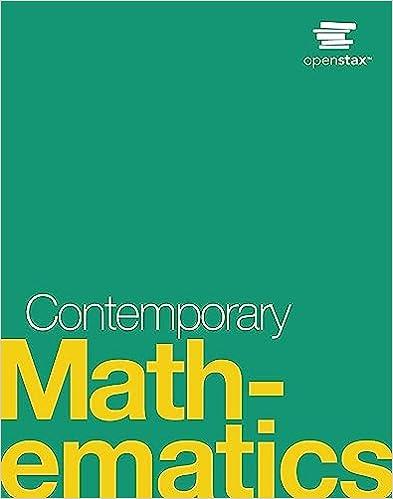Each pair of statements represents true premises in a logical argument. Based on these premises, apply the
Question:
Each pair of statements represents true premises in a logical argument. Based on these premises, apply the chain rule for conditional arguments to determine a valid and sound conclusion.
1. If my roommate goes to work, then my roommate will get paid. If my roommate gets paid, then my roommate will pay their bills.
2. If robins can fly, then some birds can fly. If some birds can fly, then we will watch birds fly.
3. If Irma is a teacher, then Irma has a college degree. If Irma has a college degree, then Irma graduated from college.
Fantastic news! We've Found the answer you've been seeking!
Step by Step Answer:
Related Book For 

Question Posted:





